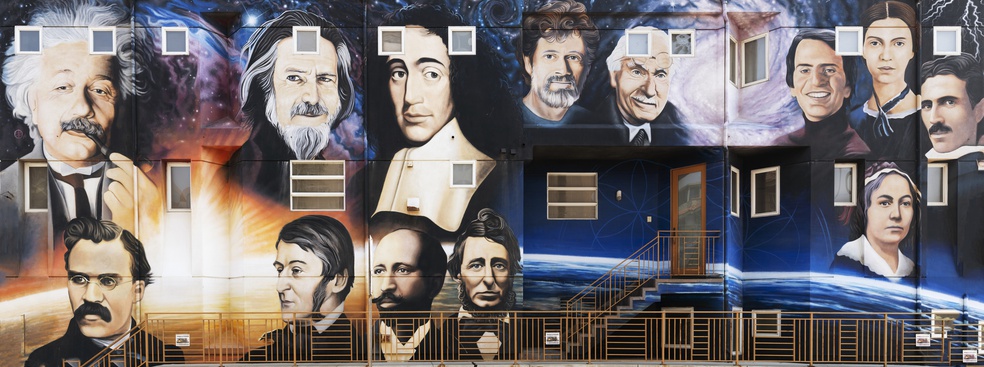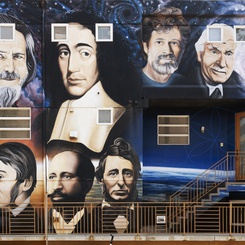The interconnection between philosophy and business is not entirely clear, and it is important to remember that business must serve philosophy, not the other way around. The key point is that we want a wiser, better world, and business is a tool we can use.
To better understand, look at stoicism, a kind of philosophy.
While Stoicism is an ontological philosophy, it is also famous for its wisdom, summarized with Epictetus' Talks. Epictetus evokes the work of the soul by separating the functions of the soul into three topoi. The first function is the discipline of desire: to renounce desiring what does not depend on us. The second function relates to habits and action: not to let oneself be carried away by disordered desires that harm one's behavior, but to show self-control. The third corresponds to the proper use of representations; it is the discipline of agreement, or being genuine in how we use our thoughts and speech in our judgment.
The presentation of the three topoi highlights that it seems impossible to think of stoicism without a practical application. By looking at the Stoic masters, we see that they are heavily involved in daily life and in business. Zeno of Elea, founder of Stoicism, inherited a fortune from his father. Seneca was a magistrate, a lender, a teacher, and a tutor. Marcus Aurelius was emperor. Cicero was a statesman, a pro bono lawyer, a landlord, and a businessman.
In Stoicism, thought and action are united. The stoic philosophers seamlessly connected their quest for wisdom and daily life. So should we not think in the same way, that is to say keep theory in mind but our feet firmly planted on the ground?
Innovation seems to be a particularly pertinent field. Because of innovations, animal populations and even species are disappearing. Mass development of technology and products has a direct consequence on the depletion of natural resources. There’s no denying that human activity has harmed the environment, and that our constant hunt for economic growth and innovation is mostly, even solely, responsible.
What kind of philosophical thinking will let us have a Stoic point of view on these subjects? What are the philosophical acts and Stoic thinking that can induce a paradigm change for humankind faced with these challenges?
Faced with man-made crises, shouldn’t we learn to desire what does not depend on us and what we do not depend on? Should we not stop letting ourselves get carried away and regain our self-control? Finally, shouldn’t we be authentic when we make decisions?
In no way should philosophy be used to serve business. However, philosophy should also not be disregarded when considering daily life, a life filled with consumption, the media, development, and investments. The world looks very different from Antiquity: it’s a world of smartphones, the internet, video games, technology, and innovation. What can philosophy tell us about these challenges that impact everyone? Stoic philosophy shows us that being rooted in reality, for example in organizations, allows us to open our eyes and question why we do what we do.
Further reading
Pavie, X. (2021). Toward Responsible Innovation: Responsibility and Philosophy for a Humanely Sustainable Future. World Scientific.









